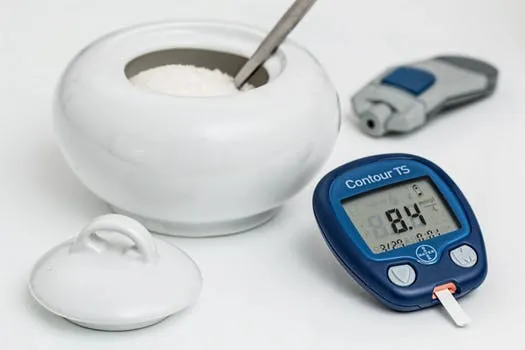There is no meal formula that is suitable for all diabetics but depending on the condition, weight, and energy consumption, each person will have a different diet.
In the past, people with diabetes often overeating leads to long-term dehydration or possibly sudden hypoglycemia. With the new view, the patient needs a well-balanced diet.

Diabetics should supplement yogurt, sugar-free fresh milk with vitamins and minerals.
Variety of diets
In principle, no food is prohibited in patients with diabetes. A wide variety of dietary sources will provide enough to help the body function normally. For children with diabetes, the more they need a diet full of nutrients to ensure their normal physical and intellectual development.
Meals must be full of carbohydrates, protein, fat, fiber and minerals to ensure the health of the patient. Powders are the source of energy for the body to function; Protein helps the cells, tissues of the organs, parts of the body to grow; Fat (fat) gives more energy and helps to absorb some vitamins. Eat fruit to have enough vitamins and minerals.
The amount of food should be based on the weight and level of physical activity of the person.
Choose foods that low blood sugar
In general, diabetic patients should limit foods that increase blood glucose levels such as sweet candy, sugar beverage, bread, labels, fabrics, jackfruit ... Should choose and eat fewer foods that increase sugar High fiber, such as green vegetables, fruits are less sweet such as apples, grapefruit, guava ...
Should eat slowly, chewing carefully, should not eat too full. Patients should eat a bowl of boiled vegetables at the start of meals. It should be noted that a mixed meal of carbohydrates and fiber is responsible for limiting postprandial hyperglycemia. Overweight people should eat less and increase exercise to lose weight. However, should lose weight slowly, should not lose weight too fast, sudden. For lean people (BMI <18.5), one or two extra meals should be eaten to gain weight, but moderate amounts of food may increase the protein or fat.
Eat fat: Limit the intake of animal fats, animal organs, animal products (sausage, pork, fast food) because these fats increase the risk of uric acid ischemia. health. Patients should replace animal fat with vegetable oil, eat more fish because this is a good source of fat for the body.
Should limit alcohol consumption because of the risk of weight gain and hypoglycemia. Patients with hypertension should reduce the amount of salt consumed daily.
Source: 1